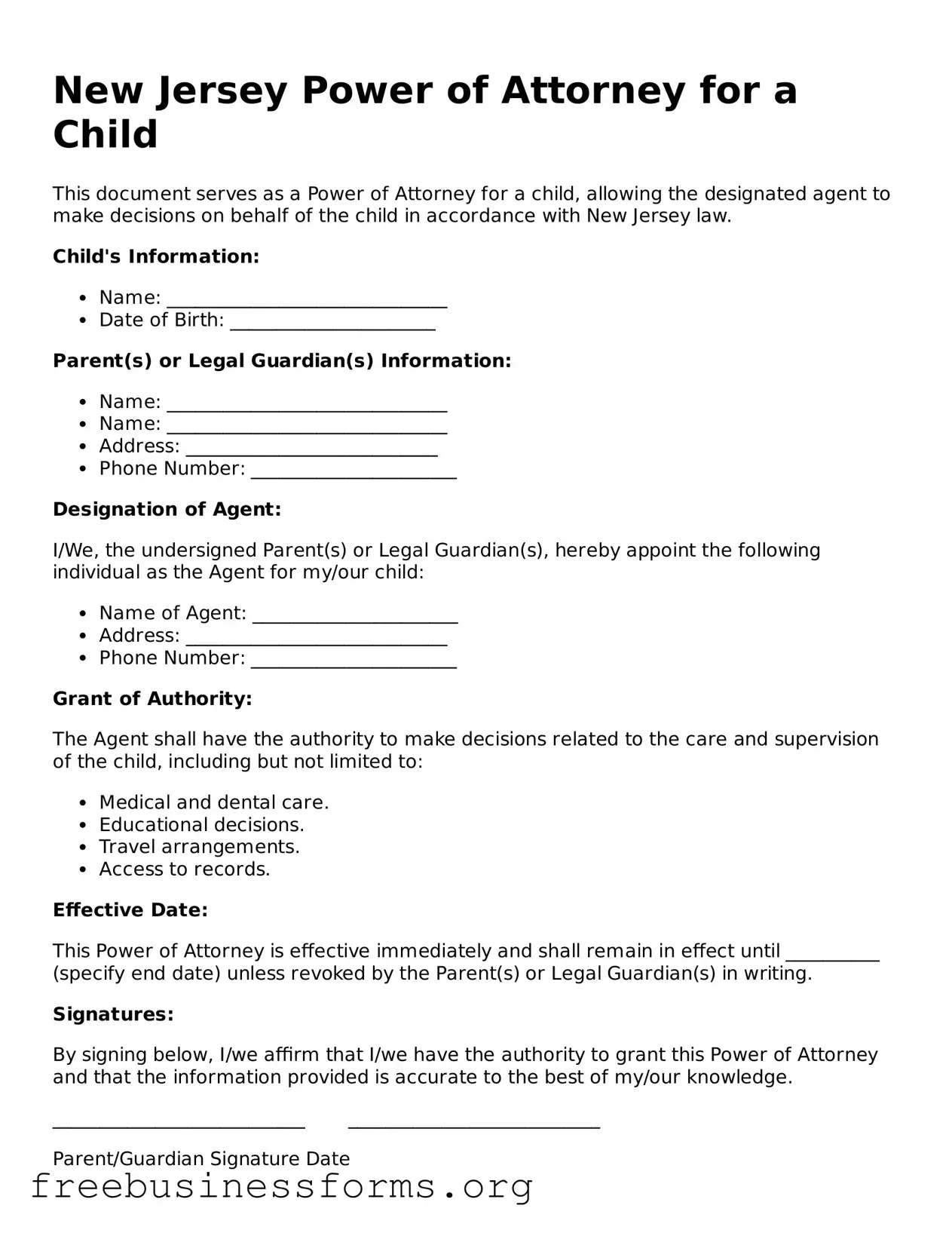Blank Power of Attorney for a Child Template for New Jersey
The New Jersey Power of Attorney for a Child form is a legal document that allows a parent or guardian to designate another adult to make decisions on behalf of their child. This form is particularly useful in situations where the parent may be temporarily unavailable, ensuring that the child's needs are met promptly. Understanding how to properly complete and utilize this form can provide peace of mind for families navigating various circumstances.
Open Form Here

Blank Power of Attorney for a Child Template for New Jersey
Open Form Here

Open Form Here
or
↓ PDF File
Quickly complete this form online
Complete your Power of Attorney for a Child online quickly — edit, save, download.